 Web browser company Opera today announce they’re bring their Web browser with AJAX support to chips for use in Consumer Electronics (CE) applications.
Web browser company Opera today announce they’re bring their Web browser with AJAX support to chips for use in Consumer Electronics (CE) applications.
It’s not long back that Opera made the decision to give their Web browser away after a long period of charging for it. A very brave and noble act many though – not a bad way to raise your profile we thought.
 They’ve been putting their browsers on different platforms for a while, like the mini-browser for mobile phones they brought out back in August 05.
They’ve been putting their browsers on different platforms for a while, like the mini-browser for mobile phones they brought out back in August 05.
The reasoning behind the give-away move becomes clearer today as they announce that they’ve been working with US chip company Sigma Designs to bring their browser software to embedded hardware via Sigma’s SMP8630 family of chipsets.
![]() Clearly looking to tread on Intel’s toes, Sigma say the SMP8630 family of chipsets can be used in digital media adapters, IPTV set-top boxes and networked DVD players that OEM’s may want to build.
Clearly looking to tread on Intel’s toes, Sigma say the SMP8630 family of chipsets can be used in digital media adapters, IPTV set-top boxes and networked DVD players that OEM’s may want to build.
To get to use the browser and the oh-so-desirable AJAX, OEM’s will need to get in touch with Opera to license their Software Development Kit (SDK). Once familiar with it they should be able to create some snazzy application.
So what’s so exciting about embedded Web browsing software? Their supports the darling of the hour buzzword – AJAX.
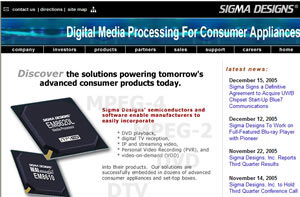 We’re sure you, dear reader, know what AJAX is, but just incase – it stands for Asynchronous JavaScript and XML. This translates to being able to use a Web browser more like a computer-based application.
We’re sure you, dear reader, know what AJAX is, but just incase – it stands for Asynchronous JavaScript and XML. This translates to being able to use a Web browser more like a computer-based application.
The most notable difference from a ‘normal’ Web app is information and updates can be carried out without needing reload the Web page each time. It’s an intergral part of the Web 2.0 landscape.
 The most often cited example is Google’s Gmail.
The most often cited example is Google’s Gmail.
We at Digital-Lifestyles see the rise of AJAX as the event that broke Microsoft’s domination of computers. So pretty significant really.
Expect this news to generate great excitement in the Blog-world.
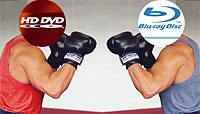 Sony and Toshiba have failed to agree on a unified format for next-generation DVDs, according to a Japanese newspaper report today.
Sony and Toshiba have failed to agree on a unified format for next-generation DVDs, according to a Japanese newspaper report today. Japan’s Yomiuri newspaper has reported that the two companies have now abandoned their efforts to develop a unified format, with negotiations falling through after both sides refused to budge.
Japan’s Yomiuri newspaper has reported that the two companies have now abandoned their efforts to develop a unified format, with negotiations falling through after both sides refused to budge.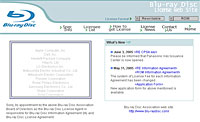 The newspaper report hasn’t been verified by either firm, although both have said that they have not ruled out the possibility of further talks at some point.
The newspaper report hasn’t been verified by either firm, although both have said that they have not ruled out the possibility of further talks at some point.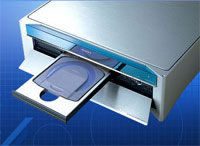 After years of throwing pans at each other, Sony and Toshiba are set to kiss and make up and develop a universal standard for next-generation DVDs, according to a report in the Nihon Keizai Shimbun business daily.
After years of throwing pans at each other, Sony and Toshiba are set to kiss and make up and develop a universal standard for next-generation DVDs, according to a report in the Nihon Keizai Shimbun business daily. Two competing formats developed out of this technology, with Sony and Matsushita (Panasonic), introducing the Blu-ray standard in February 2002, with Toshiba and NEC Corp. following with the HD DVD standard.
Two competing formats developed out of this technology, with Sony and Matsushita (Panasonic), introducing the Blu-ray standard in February 2002, with Toshiba and NEC Corp. following with the HD DVD standard.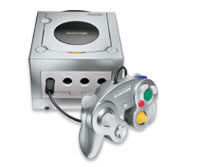 A study by Nielsen Entertainment has revealed that men spend more money on video games than they do on music, adding weight to a growing belief that video games are displacing other forms of media for the notoriously fickle attentions of young men.
A study by Nielsen Entertainment has revealed that men spend more money on video games than they do on music, adding weight to a growing belief that video games are displacing other forms of media for the notoriously fickle attentions of young men. Naturally, advertisers are keen to cash in on the rising popularity of games, and are looking at ever more persuasive ways to bombard bedroom-bound, bunglesome boys with beguiling adverts (branded billboards in race games are already commonplace, as we’ve
Naturally, advertisers are keen to cash in on the rising popularity of games, and are looking at ever more persuasive ways to bombard bedroom-bound, bunglesome boys with beguiling adverts (branded billboards in race games are already commonplace, as we’ve  Overall, Nielsen reported that active gamers tend to spend just over 5 hours a week playing alone and 3 hours a week playing with people or online.
Overall, Nielsen reported that active gamers tend to spend just over 5 hours a week playing alone and 3 hours a week playing with people or online.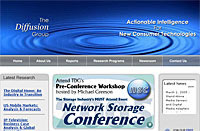 Evidence is beginning to amass that two of the most hyped products in the early digital home market will be lucky if they manage to reach niche market status in the next few years.
Evidence is beginning to amass that two of the most hyped products in the early digital home market will be lucky if they manage to reach niche market status in the next few years. JVC have wheeled out a veritable cavalcade of new, full-featured multi-format DVD recorders, including a series of combination units that combine DVD recording with hard disk drive (HDD), VHS and Mini DV recording.
JVC have wheeled out a veritable cavalcade of new, full-featured multi-format DVD recorders, including a series of combination units that combine DVD recording with hard disk drive (HDD), VHS and Mini DV recording.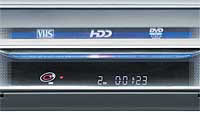 Those with VHS collections chaotically labelled with a load of indecipherable scrawling, may enjoy the auto thumbnail creation feature, which automatically creates video thumbnail chapter references when dubbing to DVD.
Those with VHS collections chaotically labelled with a load of indecipherable scrawling, may enjoy the auto thumbnail creation feature, which automatically creates video thumbnail chapter references when dubbing to DVD.